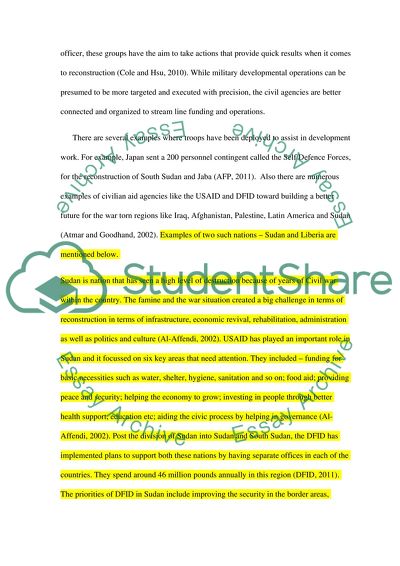Cite this document
(Role of Military and Civil Agencies in Post War Reconstruction Research Proposal, n.d.)
Role of Military and Civil Agencies in Post War Reconstruction Research Proposal. https://studentshare.org/politics/1775419-appropriate-developmental-aid-apparatus-in-conflictpost-conflict-zones-international-relations
Role of Military and Civil Agencies in Post War Reconstruction Research Proposal. https://studentshare.org/politics/1775419-appropriate-developmental-aid-apparatus-in-conflictpost-conflict-zones-international-relations
(Role of Military and Civil Agencies in Post War Reconstruction Research Proposal)
Role of Military and Civil Agencies in Post War Reconstruction Research Proposal. https://studentshare.org/politics/1775419-appropriate-developmental-aid-apparatus-in-conflictpost-conflict-zones-international-relations.
Role of Military and Civil Agencies in Post War Reconstruction Research Proposal. https://studentshare.org/politics/1775419-appropriate-developmental-aid-apparatus-in-conflictpost-conflict-zones-international-relations.
“Role of Military and Civil Agencies in Post War Reconstruction Research Proposal”. https://studentshare.org/politics/1775419-appropriate-developmental-aid-apparatus-in-conflictpost-conflict-zones-international-relations.


